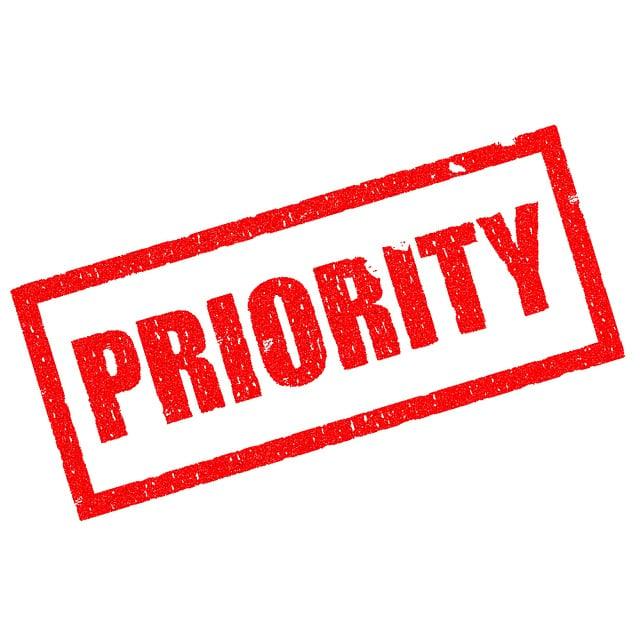- Introduction
- Understanding Plagiarism
- Importance of Checking for Plagiarism
- Features to Look for in a Plagiarism Checker
- Best Free Online Plagiarism Checkers
- Conclusion
- FAQs
Introduction
In the digital age, maintaining the originality of content is more crucial than ever. Plagiarism can tarnish reputations and lead to serious academic or legal consequences. This ultimate guide will walk you through understanding plagiarism, its implications, and the significance of checking content for originality. We will explore features to consider in a plagiarism detection tool and introduce you to the best free online plagiarism checkers available today.
Understanding Plagiarism

(Image: Pixabay/@dmalling)
Plagiarism is the act of using someone else's work, words, or ideas without proper attribution. It encompasses a wide range of practices, from copying and pasting text directly to paraphrasing someone else's ideas without credit. In academic settings, this can lead to severe penalties, including failing grades. In professional spheres, it might result in loss of credibility or even lawsuits.
There are several forms of plagiarism: direct plagiarism, self-plagiarism, mosaic plagiarism, and accidental plagiarism. Understanding these categories can help individuals avoid pitfalls when producing written content. Direct plagiarism involves copying text verbatim from a source without quotation marks or citations, while self-plagiarism refers to reusing one’s own previously published content without citation. Mosaic plagiarism occurs when a writer blends proper citations with copied phrases. Accidental plagiarism realizes when a writer unintentionally fails to cite their sources.
Understanding plagiarism isn’t just about knowing what’s wrong; it’s also about recognizing the value of original thought and creativity. Many educational institutions and businesses emphasize originality to foster innovation and intellectual growth, making understanding plagiarism a key aspect of academic and professional conduct.
Thus, as we advance further into this topic, we need to focus on how to ensure our work remains original. This brings us to the next aspect—
Importance of Checking for Plagiarism

(Image: Pixabay/@TheDigitalArtist)
The digital landscape is saturated with content, making it easy for writers to unintentionally duplicate existing work. This underlines the importance of checking for plagiarism before submitting any written material. Various reasons exist for why utilizing a plagiarism checker is essential.
First and foremost, it protects your reputation. In academia and professional writing, maintaining a positive reputation is critical. Presenting work that has been flagged for plagiarism can have significant repercussions, including loss of credibility and trustworthiness. Therefore, running your work through a plagiarism checker serves as a shield against potential backlash.
Moreover, checking for plagiarism helps honor the intellectual contributions of other authors by acknowledging their work. Proper citations not only uphold ethical writing practices but also enrich the quality of your material. By engaging with and attributing the works of others, you present yourself as a well-informed and responsible writer, adding depth to your content.
Additionally, many educational institutions now use plagiarism detection software to ensure academic integrity. Familiarizing yourself with the various tools available gives you an edge in adhering to institutional rules and maintaining honesty in academics. With this understanding of the importance of checking for plagiarism established, let’s delve into the specific features to look for in a plagiarism checker.
Features to Look for in a Plagiarism Checker

(Image: Pixabay/@distelAPPArath)
When seeking out a plagiarism checker, several characteristics can distinguish the quality of various tools. Here are some vital features you should consider:
1. **Accuracy:** The foremost feature to ensure is the accuracy of the plagiarism checker. An efficient tool should be capable of detecting similarities between your text and a vast database of published works. The larger the database, the higher the likelihood that the tool can recognize potential sources of plagiarism.
2. **Multi-Source Checking:** Some tools only check against web pages or specific databases; however, the best options provide broad-ranging checks that include academic papers, publications, and websites. This comprehensive analysis ensures better detection and accountability.
3. **User-Friendliness:** While technical sophistication may be appreciated, a user-friendly interface is essential for efficiency. You shouldn’t need a manual thicker than your content to navigate the plagiarism checker. Most high-quality tools will have straightforward instructions, clear results presentations, and prompt processing times.
4. **Reporting Ability:** A good plagiarism checker doesn’t just tell you that there is a similarity; it should also explain where and what has been matched. It should provide details about the sources identified, allowing users to improve their work and ensure any necessary citations are included.
With these foundational features in mind, the next section will highlight some of the most effective free online plagiarism checkers available.
Best Free Online Plagiarism Checkers

(Image: Pixabay/@blickpixel)
With plagiarism potentially jeopardizing your academic and professional success, leveraging available tools becomes necessary. Below is a curated list of some of the best free online plagiarism checkers that can assist you in ensuring your content's originality:
1. **Grammarly:** While primarily known for grammar checking, Grammarly offers a robust plagiarism detection feature that scans your text against billions of web pages. Users appreciate its ease of use, offering suggestions and corrections in real time. Grammarly's premium subscription increases its capabilities, such as providing detailed reports on detected plagiarisms.
2. **Quetext:** Quetext offers a simple and intuitive user interface. Its DeepSearch technology contextualizes words and phrases, boosting accuracy. The free version allows limited checks, but upgrading provides access to further analysis and feedback, helping writers enhance their work.
3. **Plagscan:** Plagscan serves both individuals and organizations, allowing users to check for plagiarism across various documents. It delivers comprehensive reports detailing similarities and proper citations to aid in rectifying any issues identified. The tool excels in academic settings, where citation integrity is imperative.
4. **Small SEO Tools:** This tool offers simple plagiarism detection with a user-friendly touch. Users can paste their content into a text box or upload documents for analysis. Although the interface isn't sophisticated, it is effective for quick checks and is best suited for casual users needing a swift service.
5. **DupliChecker:** This free plagiarism checker supports rapid scans and includes easy error reports, making it user-friendly. DupliChecker provides results instantly. However, regular users may hit daily limits, necessitating a premium option for heavy users.
With these recommendations explored, it’s crucial to remember that no tool guarantees imperfection. Understanding their limitations can help in choosing the one that best suits your needs. Before we conclude our discussion, let's embed some video content to enhance your learning experience.
Conclusion
In essence, keeping your work free from plagiarism is vital to fostering originality and integrity in writing. Whether you are a student, a professional, or simply someone who enjoys composing content, the significance of knowing how to verify that your work maintains authenticity cannot be overstated. This Ultimate Guide to Free Online Plagiarism Checkers has covered essential aspects, from understanding the nuances of plagiarism to identifying invaluable tools you can utilize in your writing journey.
Ultimately, embracing originality doesn’t just enhance your reputation; it inspires creativity and encourages a healthier dialogue within academic and creative communities. As you venture forth, ensure that you take advantage of these free resources to maintain the highest standards in your work!
FAQs
What is plagiarism?
Plagiarism refers to the unauthorized use of someone else's work, ideas, or expressions without appropriately crediting the source. It can occur in various forms, including direct copying and paraphrasing without attribution.
How can I check my work for plagiarism for free?
You can check your work for plagiarism using several free online tools like Grammarly, Quetext, Plagscan, Small SEO Tools, and DupliChecker. These platforms allow users to upload documents or paste text for analysis.
Why is it essential to check for plagiarism?
Checking for plagiarism is essential to maintain credibility and integrity in your work. It helps you honor the contributions of other authors, avoids academic penalties, and fosters original thought.
Are free plagiarism tools reliable?
While free plagiarism tools can be helpful, they may have limitations regarding database size and accuracy compared to paid versions. It's ideal to use them for preliminary checks before turning to premium services for detailed reports.
